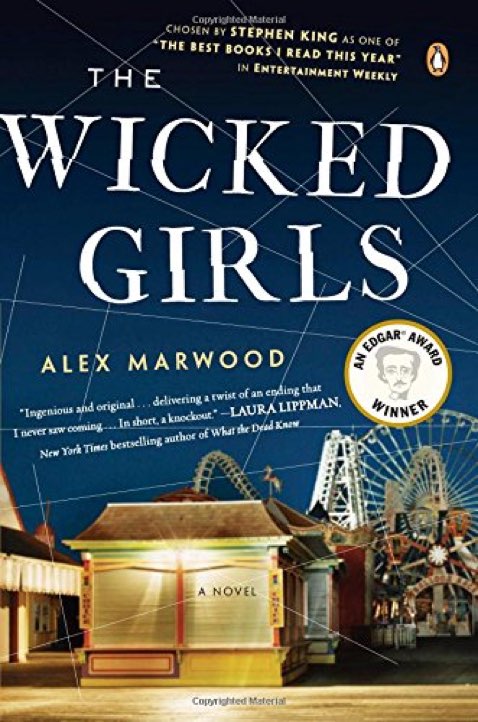The Wicked Girls
by Alex Marwood
This Edgar Award winner is no fun at all.
Years ago, school girls Annabelle and Jade met on a summer day, came across a very annoying four-year-old, and everything went as wrong as they possibly could go. Years have passed, they have been released from prison. They have new names and identities; no one knows anything about their childhood, and they never speak of it. A condition of their parole is that they never, ever meet. Jade is now Kirsty, a reporter. Bel manages night-cleaning in a horrible little amusement park in a ghastly British resort town where someone is killing young women, and where the ghouls of the British media are gathering.
Much could have been made of this, and indeed much has been made of it: it won an Edgar and its atmosphere of claustrophobic, creepy, slime is rendered with skill and detail. Marwood does not shy away from challenges: in the crucial final chase, we have three separate heroes, all isolated, blundering about on a deserted amusement park pier on a dark and stormy night, all told in present tense through internal dialogue. As a mystery, The Wicked Girls does not precisely play by the rules, but it never promised to obey those rules and it doesn’t profit from the transgression.
One conspicuously-withheld bit of information is what really happened on that long-ago summer day when two unknown girls transformed themselves into notorious murderers. This story is doled out incrementally in flashbacks which are resolved only as the climax approaches, and this natural choice creates a problem. Readers will recognize at once that the accepted story of what happened cannot be right: first, because this is a mystery, and second, because mystery readers will all know Anne Perry. The gradual disclosure must necessarily build toward a revelation, but here the revelation can only reveal pretty much what we expect. The longer the arc, the greater the apparent tension, the angrier we grow because Marwood is, in effect, making a great show of withholding from us something that is already ours. Even if the backstory had gone completely otherwise, we’d tell ourselves that we expected that. and we would not be wrong. It might have been better to avoid the drama entirely: after all, as both women tell themselves many time, they know perfectly well what happened, and it was a very long time ago.
